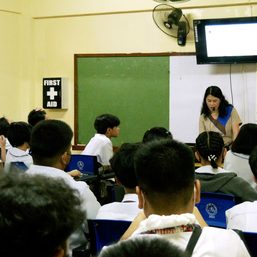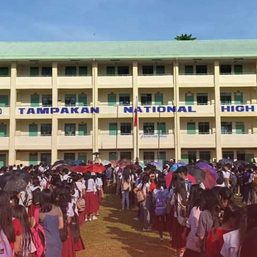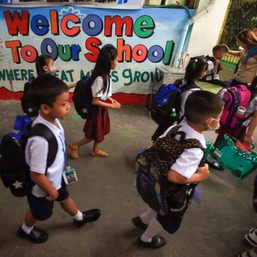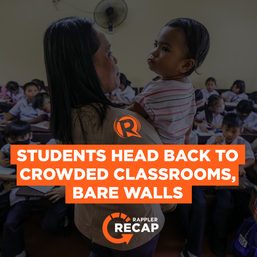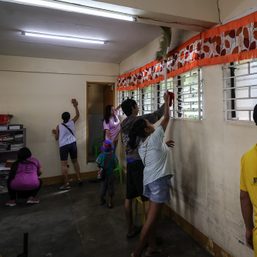As class opening draws nearer, Filipino students, parents, and teachers are still uncertain about the accessibility and the merits of online learning amid the COVID-19 pandemic.
Despite calls to delay the start of classes, Education Secretary Leonor Briones said these would open on August 24 “whatever form it is.”
Yet even with a new academic year on the horizon, students and parents continue to struggle with poor internet connectivity and with the lack of gadgets like laptops and smartphones. They fear the shift towards distance learning modalities will only worsen the challenges already being faced by different students and teachers. (EXPLAINER: Handa na bang magbukas ng klase sa Agosto 24 ang Pilipinas?)
“Wala, wala kaming internet. Wala kami. Wala kaming gadget, baka mahirapan kami talaga,” said Analyn Bangit, a parent of high school and elementary students.
(We don’t have internet connection. We don’t have that. We don’t have gadgets, so we may really struggle.)
Poor internet connectivity is not a new issue in the Philippines, yet the migration of life online due to COVID-19 has exacerbated the persistent issues of coverage and speed.
“Here in the Philippines, internet connection is not as good as our neighboring countries because of the way our internet connection landscape was made,” said Faith Marie Lorenzo, a principal of a private school.
Despite connectivity and accessibility issues, however, teachers remain optimistic about the upcoming school year. They continue to prepare learning modules for their students and attend multiple webinars to learn new methods of adapting their teaching styles to new modalities.
“In the brighter side of everything, this is also a chance for us to see what else we can do. What mile can we walk? What extra effort can we give?” said teacher Caroline Soliven.
Teachers also insisted on the importance of students enrolling, as the youth risk falling behind or potentially losing interest in their schooling. “I still believe that learning can continue as it is a basic human right essential in learning our given priority in this time of pandemic,” said Lorenzo.
The pandemic has spotlighted the inequalities of the country’s education system. As of July 17, some 6 million elementary and high school students failed to enroll because of the different circumstances Filipinos are facing during the pandemic.
Students question whether the Department of Education is aware that the accessibility of education is an urgent problem. Jamie Millan, a college student, said that the pandemic was not conducive to providing quality education. She said “the Department of Education should reconsider their decision and keep in mind that education is a right and should not be a privilege.”
The growing “digital divide” and the effects of remote learning on underprivileged students have brought the preparedness of the education sector to resume classes into question. However, the severity of such effects can only be assessed once the new school year starts. – Rappler.com
This video is co-produced by Rappler interns Aina Robeniol, Ally Benitez, Bea Esparas, Cinderella Colotario, Graciela Chico, and Nina Liu.
How does this make you feel?

![[The Slingshot] Red zipper on the mouth of Sara Duterte](https://www.rappler.com/tachyon/2024/04/TL-red-zipper-sara-duterte-april-12-2024.jpg?resize=257%2C257&crop=335px%2C0px%2C720px%2C720px)
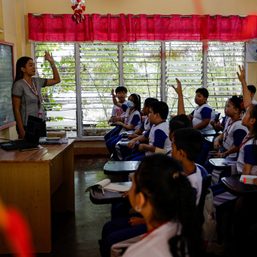
![[OPINION] How about setting up a heat health warning system in PH schools?](https://www.rappler.com/tachyon/2024/04/heat-health-warning-system-in-PH-schools.jpg?resize=257%2C257&crop_strategy=attention)

![[ANALYSIS] The multiplier effect of negligence in education](https://www.rappler.com/tachyon/2024/04/The-multiplier-effect-of-negligence-in-education.jpg?resize=257%2C257&crop=277px%2C0px%2C720px%2C720px)
